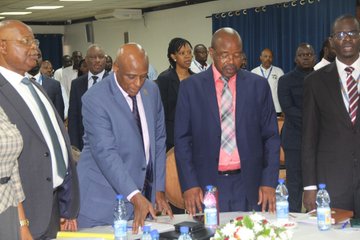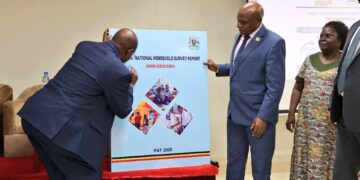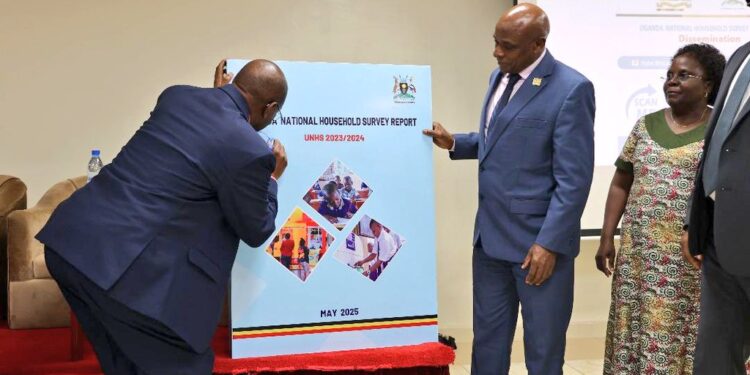The Uganda Bureau of Statistics (UBOS) has officially launched the Uganda National Household Survey (UNHS) 2023/2024 report, providing a comprehensive statistical snapshot of the country’s socio-economic realities to guide national planning and development.
The report was disseminated today at Hotel Africana, following a year-long national survey conducted from March 2023 to February 2024.
According to UBOS Executive Director Dr. Chris N. Mukiza, the survey is a vital national instrument that sheds light on key issues affecting Ugandans.

“The Uganda National Household Survey is among the many routine surveys that the Bureau undertakes regularly. The UNHS 2023/24 is the eighth in a series of household surveys conducted by UBOS since 1999,” Dr. Mukiza stated.
He said the report offers in-depth data on poverty levels, education, health, employment, household assets, income, housing, and standards of living. It is expected to play a central role in shaping Uganda’s economic policies and development interventions.
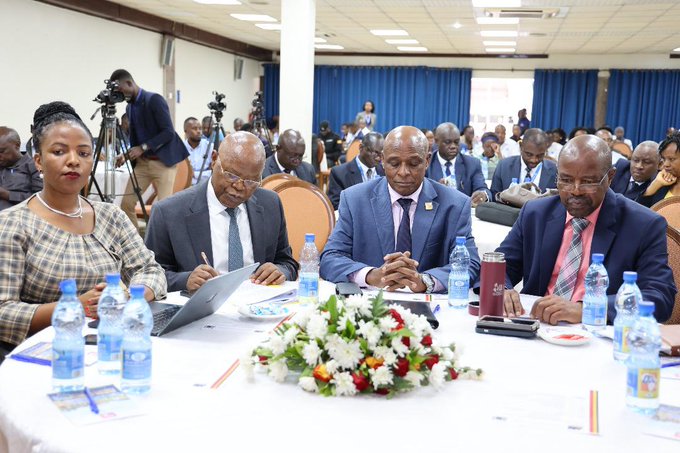
“The #UNHSREPORT2024 is not only timely but also necessary in facilitating government planning and policy formulation. This explains why and how much the Government of Uganda has invested in statistical production and development over the years,” said Dr Mukiza.
“I am confident that the data and insights generated will stimulate informed debate and support the achievement of both our national development goals and international development agendas.”
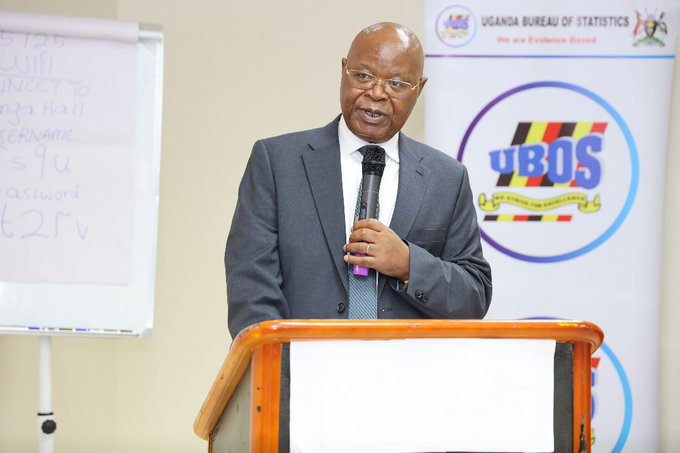
“The release of the report had initially been postponed due to the intense manpower demands of the National Population and Housing Census 2024,” Dr Mukiza explained.
Speaking at the launch, Amos Lugoloobi, Minister of State for Finance, Planning, and Economic Development (Planning), emphasised the alignment of the survey’s findings with Uganda’s development goals.
“The survey relays aspects of the population’s socio-economic status. As the government rolls out the Fourth National Development Plan (NDP IV), this report directly informs our strategy. Having this data has helped mainstream SDG targets into our local development programmes,” Lugoloobi noted.

“Through the report, the poverty prevalence has reduced from 20.3% to 16.1% at the national level. The Parish Development Model (PDM) is the principal engine that will get all Ugandans to smile into the middle-income status. We should not just have enough food for self-use but also explore the commercial sector through value addition,” he added.
The report is grounded in the UBOS Act, which mandates the Bureau to collect, analyse, and disseminate official statistics, and aligns with Uganda’s Third National Development Plan (NDP III), which positions data as a public good essential to planning.
UBOS Board Chairman Dr. Albert Byamugisha highlighted the broader global significance of the survey findings: “This report speaks directly to several SDGs, including No Poverty, Zero Hunger, Health, Quality Education, Gender Equality, and Decent Work. It comes at a time when Uganda is navigating multiple economic and social challenges. Quality data is now more essential than ever.”
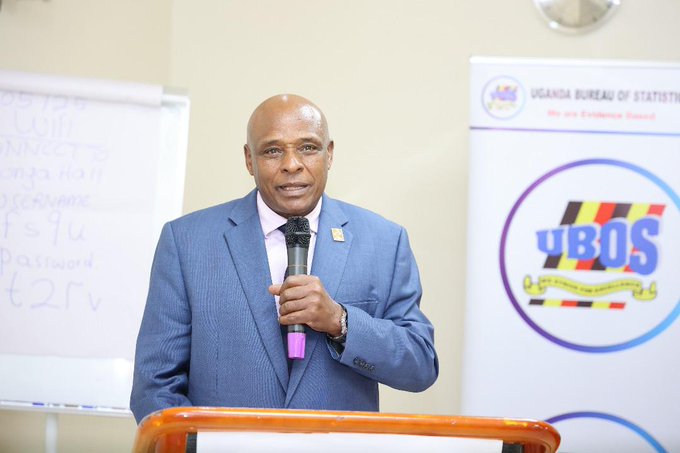
“With the UNHS 2023/24 report data now available down to the district level, policymakers can tailor interventions by region, gender, and age. This is how we ensure no one is left behind in Uganda’s development agenda,” noted Dr Byamugisha.
He lauded the UBOS technical team, led by Dr. Vincent Kiragga, for their dedication and excellence in producing timely, accurate, and disaggregated data to guide national planning. “This report comes at a crucial time when Uganda is navigating economic, social, and environmental challenges. Quality data is now more essential than ever for shaping inclusive, resilient, and responsive policy decisions.”
The government has reaffirmed its commitment to data-driven governance, with plans to integrate the findings into public service delivery, budget allocation, and sector performance reviews.
